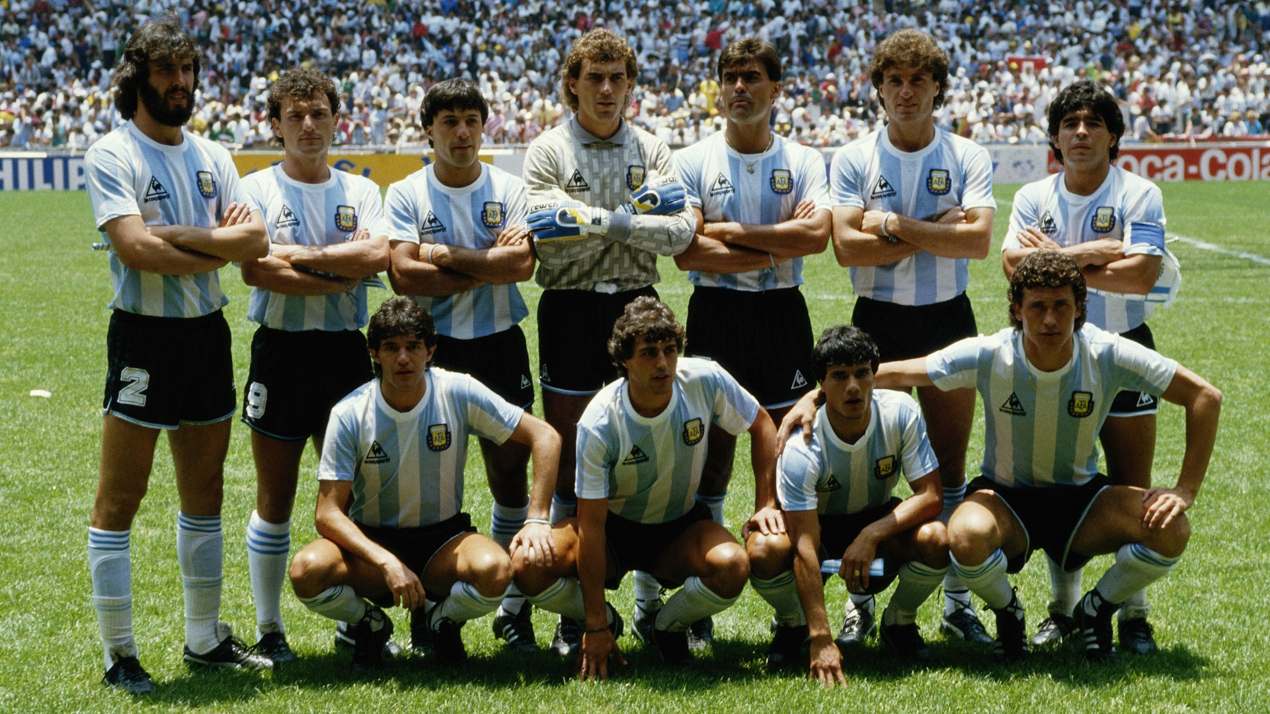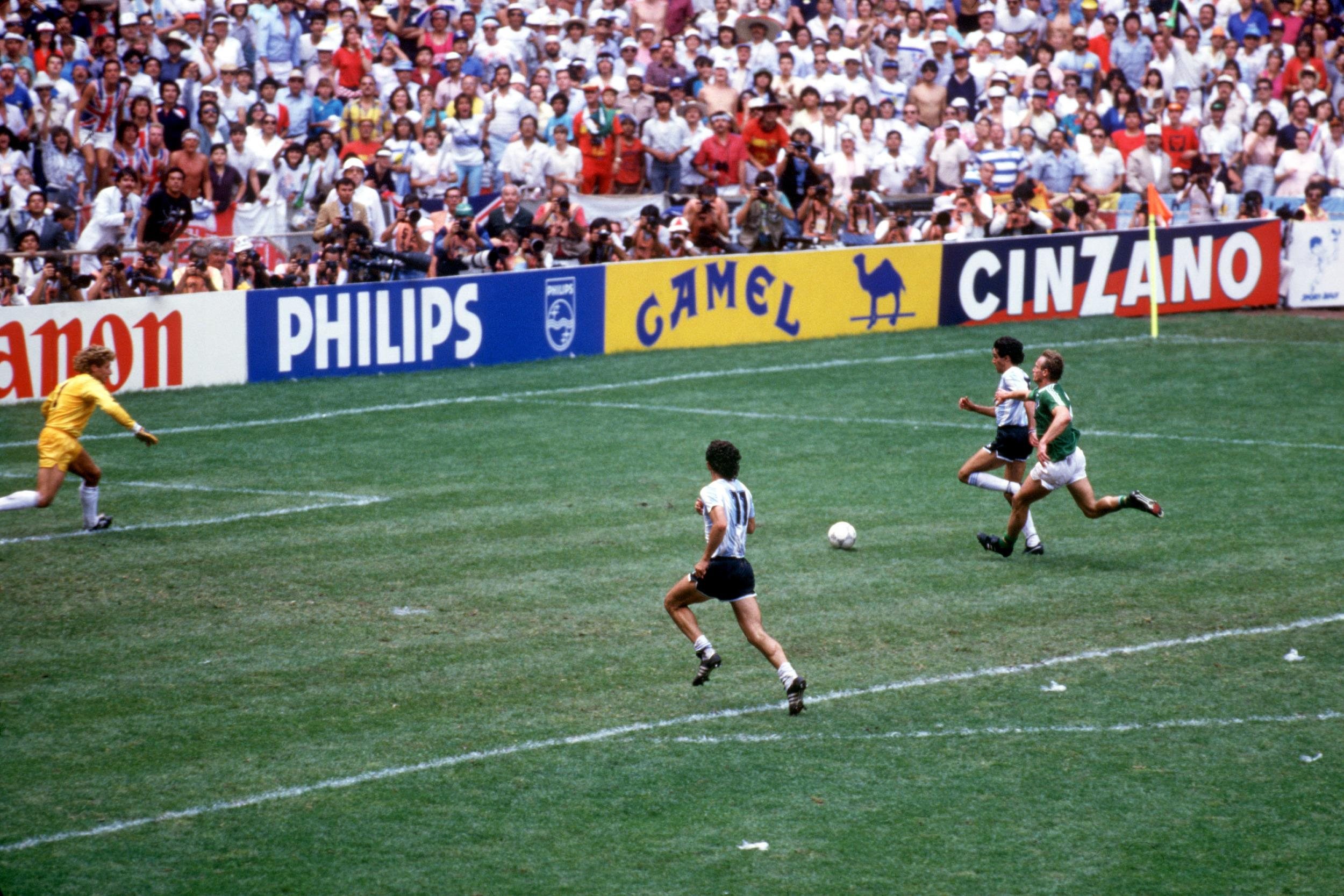
Sports
22:55, 09-Jul-2018
When China beat the future World Cup winners
Updated
22:55, 12-Jul-2018
Suvam Pal

Circa 1984, Argentina’s disastrous performance at the 1982 World Cup and the subsequent failure at the Copa America in 1983 paved the way for their 1978 World Cup-winning Cesar Luis Menotti and a few months later, a qualified physician-turned-coach, Carlos Bilardo took over the reign of the Argentina team in 1983. His first and foremost job was to build an invincible team for the 1986 World Cup in Mexico and reclaim the country’s past glory.
As part of his rebuilding process, Bilardo’s side readily accepted an invitation to play in an international friendly tournament in India, then known as the Nehru Cup. China, who were gearing up for that year’s AFC Asian Cup, also took part in the six-team tournament, also comprising of the hosts, India, Poland, Vasas Budapest, a leading club from Hungary and the Romanian Under-21 side.

Former Argentina World Cup-winning coach Carlos Bilardo poses for a portrait before the FIFA Ballon d'Or Gala 2015 at the Park Hyatt hotel on January 10, 2016 in Zurich, Switzerland. /VCG Photo
Former Argentina World Cup-winning coach Carlos Bilardo poses for a portrait before the FIFA Ballon d'Or Gala 2015 at the Park Hyatt hotel on January 10, 2016 in Zurich, Switzerland. /VCG Photo
The Chinese side went down fighting by a solitary goal in the final against a fancied Poland, who had Wlodzimierz Smolarek, one of the key players of the European side’s third-place finish at the 1982 World Cup in Spain, in their ranks. However, the highlight of the tournament was when the Asian team outclassed the much-fancied Argentina team, coached by future legend Bilardo, in one of the matches in the eastern Indian city of Kolkata. Two years later, almost the same team, under the same coach went on to win the 1986 FIFA World Cup in Mexico. China’s 23-year-old striker Zhao Dayu, who came in as a substitute in the 77th minute, scored the match-winning goal in the 86th minute as the Asian country humbled the Latin American giants and the winner of the 1978 World Cup.
“Zhao was diminutive but a very fast player both with the ball and off the ball. I still remember that goal against Argentina, and it was a clinical finish towards the fag end of the match,” Biswajit Bhattacharjee, a coach and a former player, who captained India against China in that tournament, told CGTN over the phone from Kolkata.
“The goal came against the run of play but was a result of a very calculative move by the Chinese from the right flank during a counter-attack,” Bhattacharjee added.
The victorious Chinese team also had players like Yang Ning, Zhu Bo, Lin Lefeng, Jia Xiuquan, Qin Guorong, Zuo Shusheng, Liu Hongxiang, Lin Qiang, Gu Guangming, Liu Haiguang, and Li Hui, who put up a valiant fight against their fancied opponents on that day.
The Argentine team’s first-choice goalkeeper, who was beaten by Zhao’s strike, was Nery Pumpido, who went on to play a key role under the bar for the Albiceleste in Mexico two years later. The likes of Ricardo Giusti, Oscar Garre were the regular part of the side that outshone the erstwhile West Germany 3-2 in a fairytale final at Mexico City’s Azteca Stadium. One of the best players against China and in the entire Nehru Cup was a certain Jorge Burruchaga, who scored the match-winning third and the final goal in the final against West Germany.
The most famous Argentine missing in action during that defeat of Bilardo’s side was their future captain and then Barcelona player Diego Armando Maradona, who was recovering from a broken ankle, caused by Athletic Bilbao’s Andoni Goikoetxea during a La Liga game at the Camp Nou a few months earlier.

Argentina's Jorge Burruchaga (second R) scored the winning goal in the 1986 World Cup final against Germany, played against China in 1984 Nehru Cup in India. /VCG File Photo
Argentina's Jorge Burruchaga (second R) scored the winning goal in the 1986 World Cup final against Germany, played against China in 1984 Nehru Cup in India. /VCG File Photo
“El Pibe de Oro” or The Golden Boy was quite conspicuous by his absence along with another star player of the batch of 1986, Jorge Valdano, who was busy playing for Real Madrid at that point of time. But the rest of the side, who were quite lackluster throughout the now-defunct tournament in India, and lost their match against China, transformed into a World Cup-winning side in just two years. Two of the players, who played that game against China but failed to make it to the 1986 World Cup squad were Hector Cuper, who guided Mohamed Salah’s Egypt to this year’s World Cup in Russia, and Ricardo Gareca, the man who helped Peru qualify for over two decades and managed the Incas in Russia this year.

SITEMAP
Copyright © 2018 CGTN. Beijing ICP prepared NO.16065310-3
Copyright © 2018 CGTN. Beijing ICP prepared NO.16065310-3